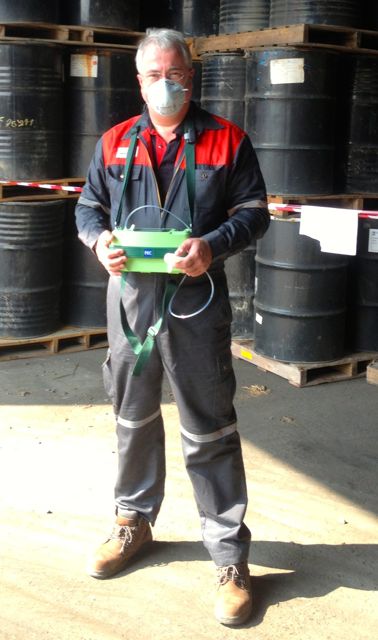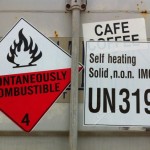In many cases waste disposal is considered by the end of a project when the waste comes available and that is too late.
Why wait?
Why don’t people look at the waste disposal aspects earlier in a project? Reasons can be that the quantity is not known yet or that the composition of the waste is not known. Due to the unknown composition it may not be possible to establish the hazards. In some cases the project resulting in the waste is done by an industrial services contractor and at the end of the project the waste is handed to the owner or operator of the plant. Waste disposal may be the responsibility of another part of the organisation that is not involved in for example maintenance projects. Or waste disposal is simply underestimated.
Integrate waste disposal
With most waste, but certainly when dealing with hazardous waste it pays off to consider disposal as early as possible in the project and integrate it in the planning. Not doing so can lead to serious delays and long times of getting stuck with waste. Many countries also limit the time that you can store waste leading to possible violations if you can’t move it in time.
Dispose, treat or recycle
Depending on your waste stream it may be complex to get rid of and the more hazardous the fewer options you may have. Knowing your disposal options is an important step. Can you simple dispose, is treatment required or is it possible to recover materials that can be recycled? Is the solution nearby or far away? Advanced treatment and recycling facilities are often located in western countries. One of the reasons for this is that it is illegal under the UN Basel convention to move hazardous waste in to a developing country. Therefore waste treatment facilities in developing countries can only cater for the domestic market making it difficult to reach sufficient economy of scale.
Packaging
Another good reason to plan ahead is packaging having the right packaging from the start saves repacking when the waste can’t be moved if packed wrong. Packaging of waste is regulated and important for the safety of transport, storage and handling. Sometimes suitable packaging is not locally available and needs to be imported. Limiting the time the waste is packed can also lead to savings, under some conditions, rain, moisture and sunlight packaging can deteriorate very fast and it is not uncommon that repacking is required prior to transport after long periods of storage.
Permitting
When waste has to be stored and moved permits will be necessary. Obtaining permits can take a lot of time as you have to work with governmental organisations. When waste has to be moved between countries permission is needed not only from the country of origin and the destination country, but from every intermediate country that the transport passes trough. Even when waste stays on board of a ship visiting a port the authorities of that country have to give permission for the waste to be on board. This system of permitting is regulated under the UN Basel convention. Obtaining all the permissions can take more than half a year depending on the countries involved. Some countries also require inland waste movement permits and special licenses and insurances for the vehicles used for the transport. Storage facilities need to be licensed for the storage of the waste and there may be limits to the time that waste can be stored. Regulatory frameworks differ by country. All issues that take time to clear if you want to make sure you stay within the rules.
Transport and storage
Pending the permits transport has to be organised and that is also not easy. Many transport companies, shipping lines in particular, don’t like waste on board their vessels. Most simply refuse all waste and by doing so they make it even harder to find proper disposal solutions for complex hazardous waste. Some shipping lines do accept waste under strict conditions and only via specialized booking agents that work with experienced people in the field that know how to safely load and secure hazardous waste cargo. In all cases acceptance of the hazardous cargo is in the hands of the DG (Dangerous Goods) department of a shipping line and the final decision is with the captain of the vessel who can refuse cargo in exceptional cases. The hazardous cargo needs to be very well documented, not only in writing, often pictures of the cargo and it’s securing in the containers are required too.
Depending on the departure port temporary storage may be needed at the port between delivery of the cargo and loading it on the vessel. Also for this short term storage the warehouse needs to be licensed to store the waste.
Conclusion
Not including waste disposal in your project can cause serious delays and unexpected additional cost. Altogether a lot has to be planned and organised to timely and legally dispose of hazardous waste. If you need a helping hand, let me know!

